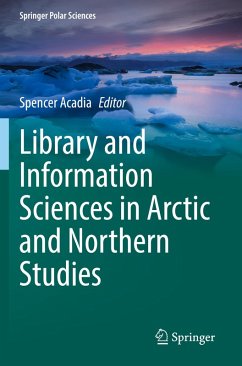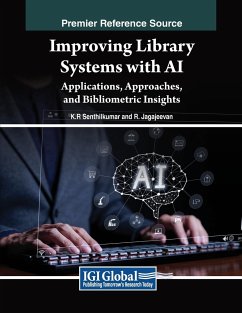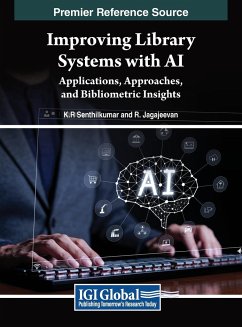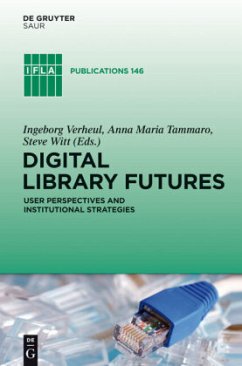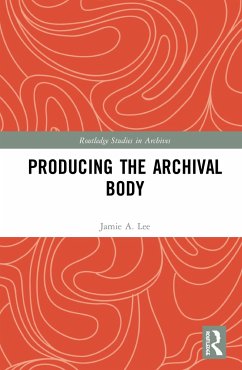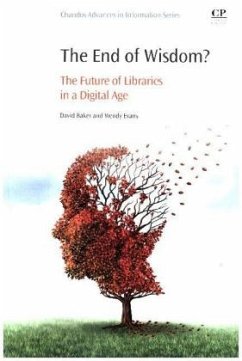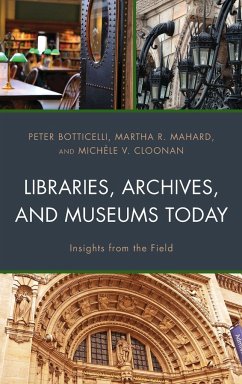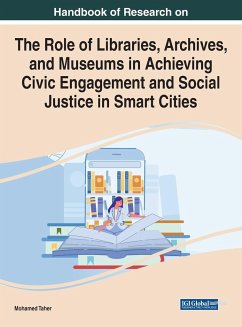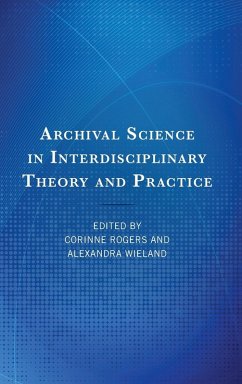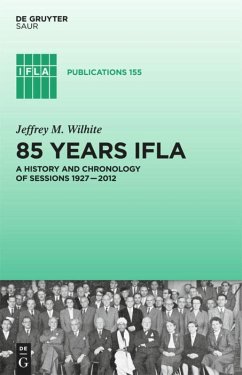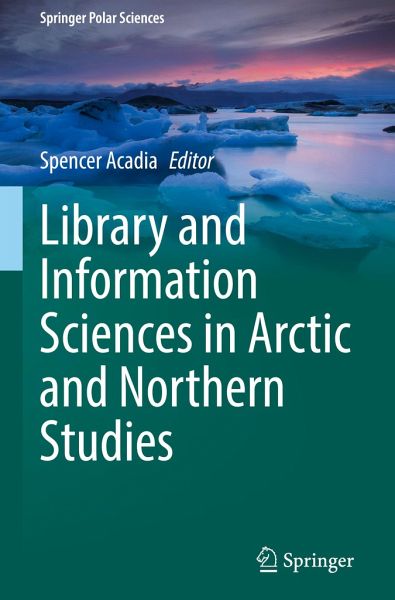
Library and Information Sciences in Arctic and Northern Studies

PAYBACK Punkte
53 °P sammeln!
The role of library and information sciences (LIS) in, for, and about Arctic and Northern studies is underexplored. This book examines the intersection of LIS and Arctic/Northern scholarship, research, and study by considering the Arctic and North as a global information-knowledge society; demonstrates practical and applied ways that librarians, archivists, curators, and other information scholars and professionals can participate and have participated in real activities within Arctic and Northern environments; explains how LIS - as a discipline focused on data, information, and knowledge - ha...
The role of library and information sciences (LIS) in, for, and about Arctic and Northern studies is underexplored. This book examines the intersection of LIS and Arctic/Northern scholarship, research, and study by considering the Arctic and North as a global information-knowledge society; demonstrates practical and applied ways that librarians, archivists, curators, and other information scholars and professionals can participate and have participated in real activities within Arctic and Northern environments; explains how LIS - as a discipline focused on data, information, and knowledge - has a significant role to play in Arctic and Northern endeavours; and emphasises the inter-/multi- disciplinary nature of what are Arctic studies and Northern studies and the placement of LIS into that structure. Even though LIS has historically been overlooked in Northern and Arctic matters, this book suggests that LIS is in a remarkable position to add value to future Arctic/Northern studies. Thisbook is of interest to scientists, researchers, scholars, educators, professionals, and students globally working in Northern and Arctic contexts and/or with Northern and Arctic pursuits in mind.



